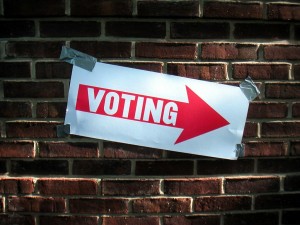Articles
Advocacy - Letters to the Editor
<p>Letters to the editor of a local newspaper can be another effective way of influencing your MOCs, as well as other citizens. As <a href="http://www.ucsusa.org/action/writing-an-lte.html#.WKDa2_Jc-2A" rel="noopener noreferrer" target="_blank">this post</a> from the Union of Concerned Scientists (UCS) says,</p> <p>Writing a letter to the editor (LTE) of your local or regional newspaper is an effective and easy way to reach a large audience with your message. LTEs are printed on the editorial page, which is one of the most read pages in the paper. Congressional staffers also tell us that members of congress keep a close eye on media coverage, including LTEs, in their local papers so they can keep a “pulse” on issues of...</p>
Read MoreAdvocacy - Attendance at an MOC’s Town Hall Meeting or Other Public Event
<p>Attendance at an MOC’s town hall meeting or a public event where the MOC is present can be a very effective way of interacting with your MOC. Not all of our area MOCs conduct traditional town hall meetings; some may hold telephone town hall meetings, and others (U.S. Senators especially) may not do either. (State legislators are more likely to hold in-person town hall meetings.)</p> <p>The <strong>town hall meeting</strong> format allows participants to ask questions of the MOC. If called on, you may introduce your question with a very brief statement of the issue and why you care about it; but you won’t be able to ...</p>
Read MoreAdvocacy - Visits to the MOC's Office
<p>Probably the most effective way to interact with your MOCs and their staffs is by getting a group of people together to visit them in their DC or district offices. You’re unlikely to get a meeting with a MOC in his/her DC office while Congress is in session, but you may be able to meet with the MOC (more likely your Representative than a Senator) in his/her district office when the MOC has office hours there or during a Congressional recess. And you should be able to get a meeting with the MOC’s staff, even during times when the MOC is unavailable.</p> <p>Meeting with a MOC or his/her staff gives you...</p>
Read MoreAdvocacy - Phone Calls
<p>Phone calls are an effective way of communicating your views to your MOCs, particularly on hot-button issues of the day. Your MOCs are already getting lots of calls on such issues, and it’s important that your views get tallied along with those of other callers. For the phone numbers of your MOCs, visit their websites. Limit each call to a single issue.</p> <p>Before calling, decide whether you just want to register your opinion for or against some pending action, or whether you want to have a substantive discussion with the MOC’s staff about it. If the issue has a high profile, such that the MOC is ...</p>
Read MoreAdvocacy - Emails
<p>Particularly if you need your MOC to act on an issue within the next two weeks, sending an email message is one of the more effective ways of communicating with your MOC. It’s easier than sending a letter, and it allows you to present your position more fully than in a short social media message or phone call.</p> <p>Most of the tips for letter writing apply to email messages as well:</p> <ul><li>Limit your message to one issue.</li> <li>Be respectful and professional; avoid spelling and grammatical errors.</li> <li>Be succinct: state your specific “ask” (e.g., to support or oppose a particular bill identified by its nam...</li></ul>
Read More


